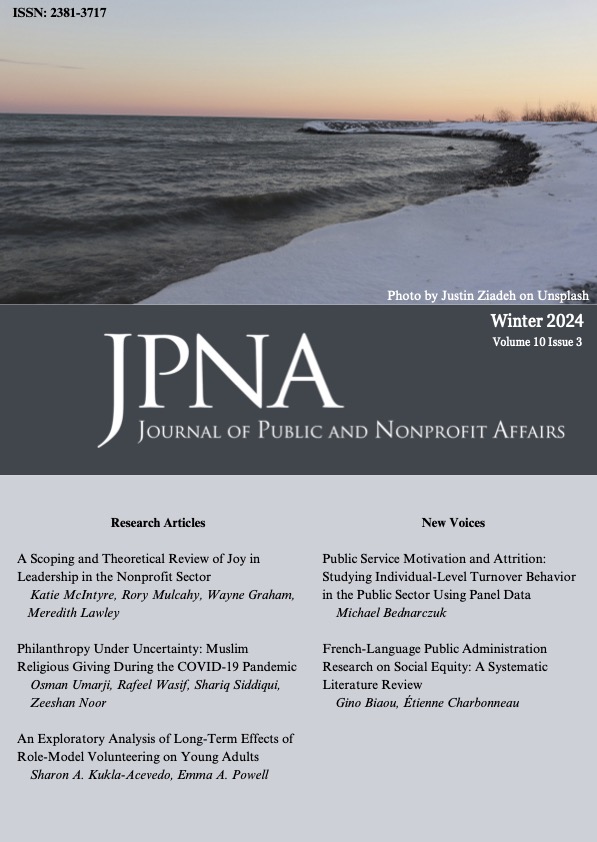Philanthropy Under Uncertainty: Muslim Religious Giving During the COVID-19 Pandemic
DOI:
https://doi.org/10.20899/jpna.c7vvvv81Keywords:
philanthropy, charitable giving, uncertainty intolerance, decision making, COVID-19Abstract
This study investigates the demographic, religious, and psychological correlates of charitable giving during times of uncertainty. We employ structural equation modeling to understand the mechanisms that underlie faith-based philanthropy amongst Muslims. For this purpose, we analyzed Muslim American philanthropy during the month of Ramadan in 2020, a month traditionally associated with increased religiosity and philanthropy. Utilizing a sample of 1,722 Muslims in the United States and Canada, uncertainty intolerance was associated with financial anxiety (B = .26), which in turn was related to donating less money (B = -.06). Financial anxiety was also associated with subjective financial well-being (B =.-.22), which was associated with donations (B = .11). We also found that income (B = .23), education (B = .30), and age (B = .28) positively predicted charitable giving. Increased religious practice (B = .07), such as prayer and reading scripture, was also associated with donating more money. Our results add valuable insights to the literature about the predictors and mediators of religious giving and philanthropy under uncertainty.
Downloads
Published
Issue
Section
License
Authors who publish with this journal agree to the following terms:
- Authors retain copyright and grant the journal right of first publication with the work simultaneously licensed under a Creative Commons Attribution License that allows others to share the work with an acknowledgment of the work's authorship and initial publication in this journal.
- Authors are able to enter into separate, additional, contractual arrangements for the non-exclusive distribution of the journal's published version of the work (e.g., post it to an institutional repository or publish it in a book), with an acknowledgment of its initial publication in this journal.
- Authors are permitted and encouraged to post their work online (e.g., in institutional repositories or on their website) prior to and during the submission process, as it can lead to productive exchanges, as well as earlier and greater citation of published work (see, The Effect of Open Access).







